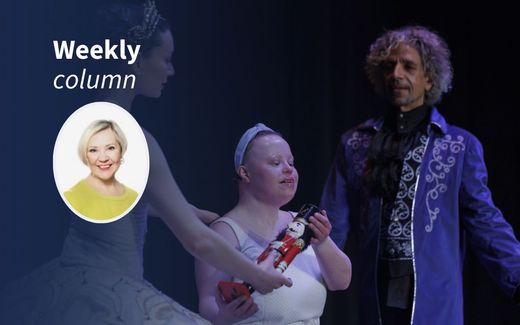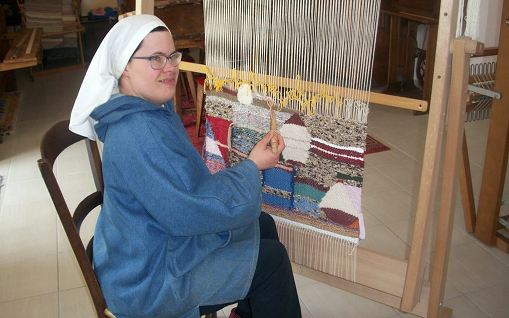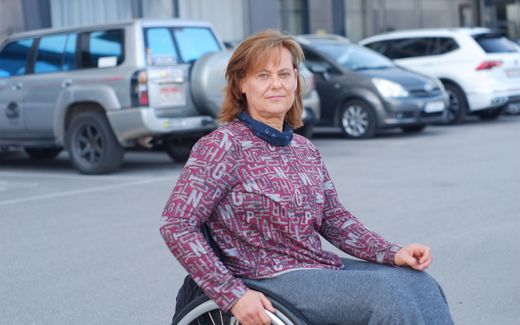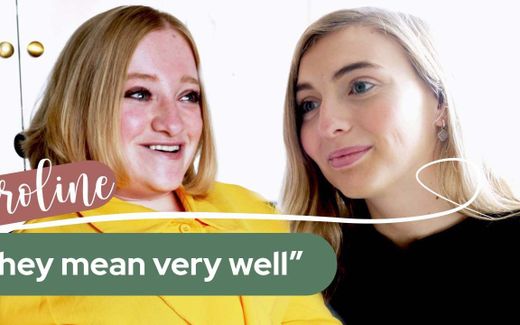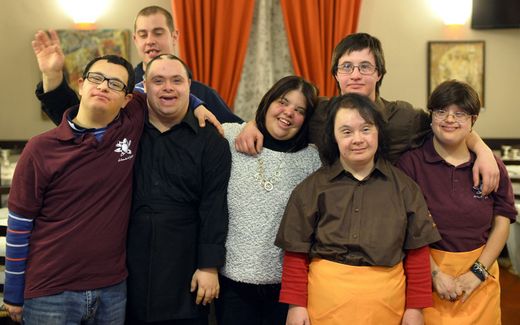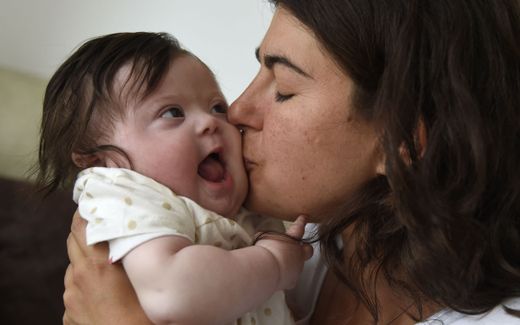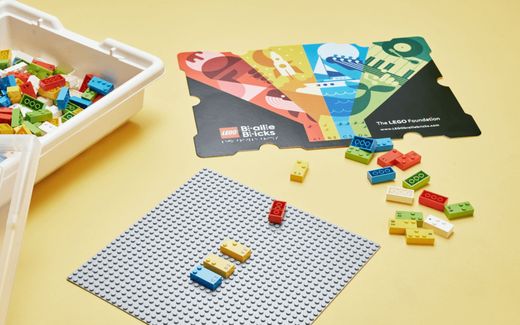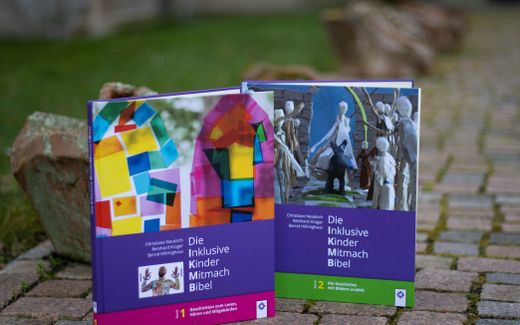Anelia's hardest struggle was finding a school that accepted her disability
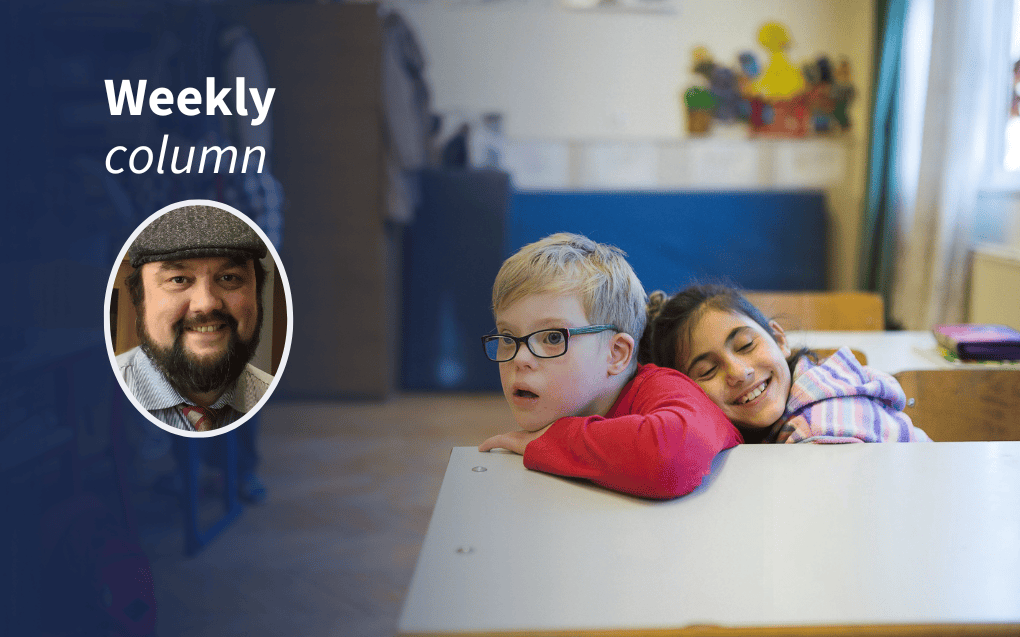
Photo Canva.com, EPA, Attila Balazs Hungary Out
Christian Life
Yvonna and Stoimen live in Sofia, Bulgaria. When they got married, they imagined a small family – two children, maybe a pet, a quiet home. But a different reality awaited them. One child came, then another, and then more. Today, their flat is full of voices, energy, and love.
Stay up to date with Christian news in Europe? Sign up for CNE's newsletter.
Their last child, Anelia, brought a different kind of surprise. From her first months, Yvonna noticed things were not quite right. Anelia didn’t lift her head. She didn’t move like her brothers and sisters. She didn’t reach out to touch her mum’s forefinger.
Doctors ran tests. After months of visits, they gave a name to her condition: cerebral palsy.
Anelia is now almost ten. She can’t walk or move much, but she is full of joy. She loves going to birthday parties. Not only that, but she remembers names and stories, and wants to learn. But one big challenge stands in her way: school.
Yvonna and Stoimen spent months searching for a primary school that would welcome their daughter. Many schools didn’t know how to. Most didn’t even try.
Paper reality
Bulgaria says it supports inclusive education. There are laws, plans, and national strategies. Schools are told to welcome children with special educational needs (SEN). But in practice, many families find that inclusion exists only on paper.
On March 25, 2025, a roundtable discussion in the Bulgarian Parliament brought this reality into focus. The event, titled “Inclusive Education for Children with Special Needs – Good Models and New Challenges”, was initiated by MP Yordanka Fandakova.Educators, members of parliament, and the Minister of Education, Krassimir Valchev, came together to explore where the system falls short and what can be done.
Fandakova, herself formerly a school director and later mayor of Sofia, presented recent data from the Ministry of Education. Since 2016, the number of SEN children in Bulgarian schools has increased from 14,054 to 19,371 – a rise of 5,317 students. Children with emotional and behavioural difficulties have also multiplied, from 491 to 1,907.
The numbers show that 7,769 SEN students are in grades 1–4, 6,645 in grades 5–7, but only 3,350 in grades 8–10. “Where do these children go?” Fandakova asked, noting the sharp drop in older grades. She also questioned whether official statistics capture the full picture. “I believe many children who need support are still missing from these numbers,” she said.
Slowly
Schools are not ready. Many towns lack resource teachers, therapists, or school psychologists. Some schools have no support staff at all. Teachers try to help but often feel alone. Older educators were trained at a time when children with disabilities were sent to special schools. Younger ones may be more open to teaching SEN children but still lack equipment. Meanwhile, parents feel tired and alone. Some fight to get help. Others give up. Their children fall behind — slowly, silently.
Real inclusion is not just placing a child in a classroom. It means supporting them, helping them learn, and making sure families feel safe. But schools cannot do this alone. They need help from healthcare workers, social services, local governments, and churches. Right now, each system works separately. And families like Anelia’s are caught in the middle.
Still, not everything is dark. Some schools are changing. They build strong teams, include parents, and ask NGOs for help. Some teachers are ready to improve. Some already have.
Progress
Some Christian communities in Bulgaria are looking for ways to get involved. Sunday school groups have attempted to make more made space for children with disabilities. Youth leaders are more open to including them. Many churches provide home visitations for families, put them on intercession lists, or offer practical aid.
“I envision this school totally different – improved and much brighter – within the next two or three years”
But there is room for more. The Bible teaches us that every person is made in the image of God. That includes children like Anelia. Jesus welcomed disabled people who were ignored by society. As His followers, we are called to do the same.
This winter, after years of searching, Yvonna and Stoimen found a school that was willing to welcome Anelia. Not only that – they moved all their other children there too.
For the first time, Anelia is accepted into a special needs class. A resource teacher supports her and several other children. For the past few months, she has been following a simplified curriculum. Bit by bit, lesson by lesson, she is making progress. And now her parents are happy to say she has achieved a lot of knowledge and gained much confidence. More importantly, she is happy and proud to be able to attend her siblings’ school on a daily basis.
Brighter
Having seen these signs of hope, Yvonna also decided to join the parents’ committee. They meet regularly to discuss how to improve the school. Basing her confidence on her faith in Christ, she brings new ideas, hope, and experience. “I envision this school totally different – improved and much brighter – within the next two or three years”, she explained one evening, after picking up her children from school.
Yvonna is an Evangelical Christian, supported by her church. Even though the congregation is fairly small, it has maintained a steady ministry among families with suffering children for years.
Church members, for example, provide one-on-one care and consultations for moms. They also organise days for social activities where parents can come together and exchange ideas and mutual support while someone is caring for the children. The church provides legal help, and links families to social aid programs and various NGOs that can support them. And once a year, the church sets up a summer camp where parents with special needs children can gather to study the Bible, build community and have a retreat.
Not alone
Yvonna’s story is not unique. Many parents are searching for hope, for change, for someone to care. Christian NGOs and church groups are starting to offer support, training, and encouragement.
The road is still long. But with love, faith, and teamwork, it is not impossible.
Names are changed
Related Articles


